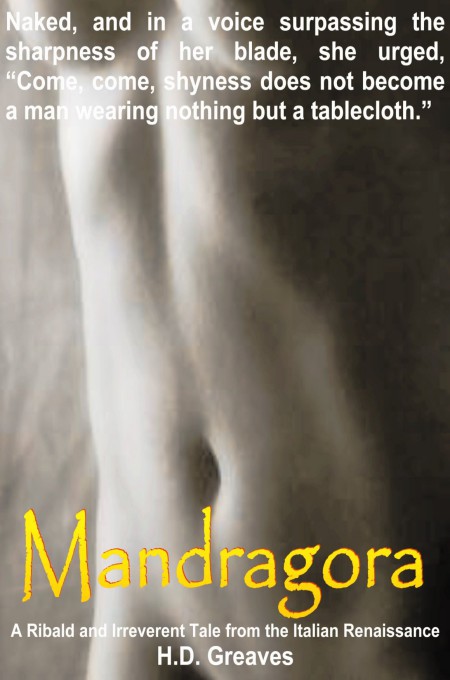 A ribald and irreverent tale from the Italian renaissance - Add a conniving servant and his amoral master; a murderous priest and his equally homicidal sidekick; an odious mother-in-law; a beautiful but barren wife wed to an ancient attorney; and a potion brewed from the root of the Mandragora, a plant alleged to help women conceive, and you have a prescription for pandemonium, especially when Mandragora (known in less reputable circles as “God’s Little Joke”), possesses a fatal flaw: after a woman drinks the potion, her body becomes a temple of poison. The first man to have sex with her will be dead in seven days. What's a man to do?
A ribald and irreverent tale from the Italian renaissance - Add a conniving servant and his amoral master; a murderous priest and his equally homicidal sidekick; an odious mother-in-law; a beautiful but barren wife wed to an ancient attorney; and a potion brewed from the root of the Mandragora, a plant alleged to help women conceive, and you have a prescription for pandemonium, especially when Mandragora (known in less reputable circles as “God’s Little Joke”), possesses a fatal flaw: after a woman drinks the potion, her body becomes a temple of poison. The first man to have sex with her will be dead in seven days. What's a man to do?Based on Niccolo Machiavelli’s play, The Mandrake, this is a tongue-in-check story of a rake desperate to sleep with a certain woman, a husband desperate for a child, and a wife desperate for control of her own life. The heart of the novel lies in the question, “Does the end, when a noble one, justify the means, however wicked?”
The story starts with a hanging, and who doesn’t love that? I’m reminded of another great historical fiction tale that does this well, Pillars of the Earth, which starts (and ends) with a hanging. This immediately pulls the reader into the setting, and the story making them curious about how these characters got here and how they relate to or foreshadow events surrounding the main characters. Greaves holds up his end of the bargain, keeping the reader’s attention with one crazy scheme gone wrong after another.
In addition, Greaves expands on the characters in the original play, making them well rounded and more believable rather than the caricatures of the original play. The servant, Siro, is now the catalyst for Callimaco’s antics rather than just being strung along. With this transformation of Siro, the need for another facilitator of the plot is now almost non-existent. So the character of Ligurio (a marriage broker and the “brains” behind the plan in the original play) is instead a downtrodden, almost destitute, filthy con man that Greaves uses to illuminate the darker reality for the non-elites of the time period.
One of the things that I enjoyed most about Greaves’ writing style was his conversational storytelling and his often wink, wink, nod, nod asides to the reader. Occasionally he would break down the fourth wall to address the reader directly, such as:
“Regrettably, this cannot be said of lechery itself, for since evil was created at the beginning of the world lechery has been an all too common sin (as you and I, being virtuous, know very well).”
While I enjoyed this writing style, it became one of the things that I began to dislike at times. Greaves had great lines such as:
“A hanging without music is as boring as a Borgia banquet without at least one goblet tainted with poisoned wine.”
But then at times it felt a bit much:
“So pitted by the corrupting hand of Man and so pockmarked by Church dogma, how could it ever be the honest face of The Truth: Truth unbiased, factual, and as clear as cool water drawn from a deep and unpolluted well."
The supplemental material at the end of the book was almost as interesting as the story itself. Like many great works of historical fiction, Greaves provides a list of discussion questions for book clubs and reading groups. I found these questions to invoke thoughtful contemplation.
It is hard to believe that this is H.D. Greaves’ first published novel (he had written several short stories). Mandragora is a well-written, well-edited, funny, and thoughtful comedic tale that, while it may divert at times from Machiavelli’s play, stays true to the original.
I, personally, am looking forward to his current work in progress: Clizia – A Tale of Scandalous Surprises.
You can learn more about H.D. Greaves and his works at Smashwords.
For more reviews from the Bookworm, stop by the Bookworm's Fancy!
No comments:
Post a Comment